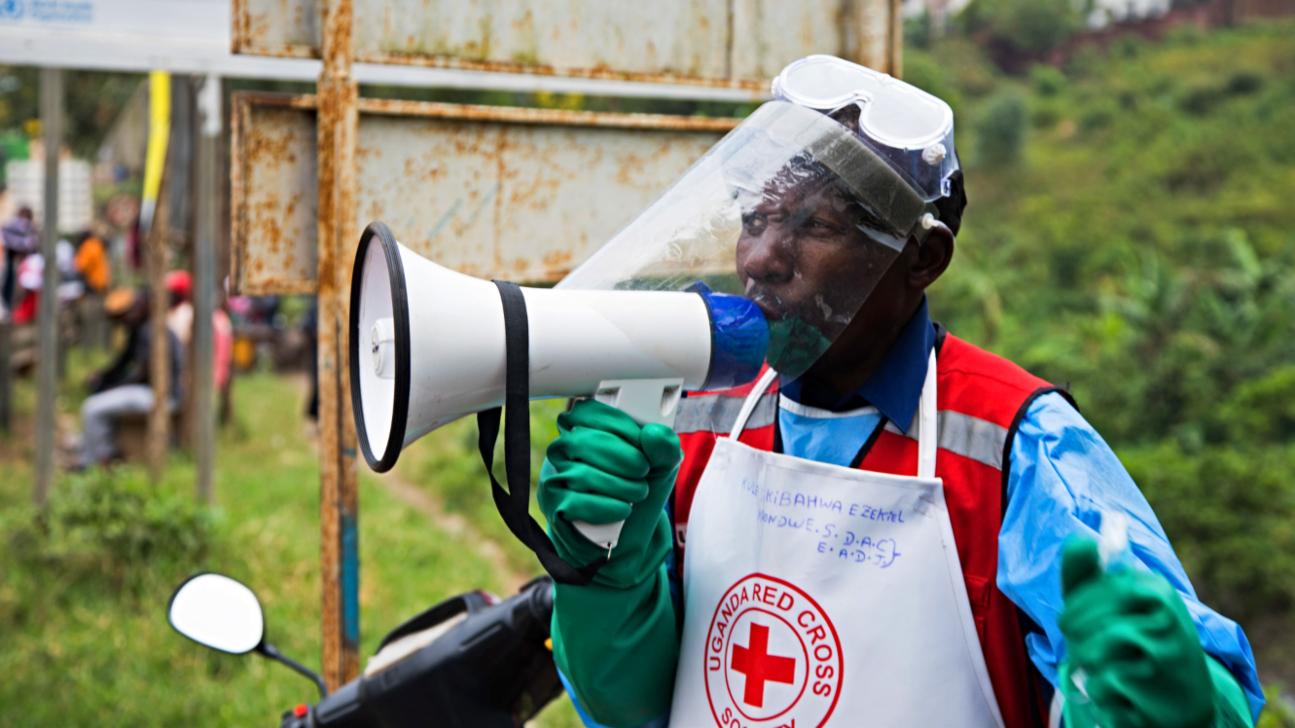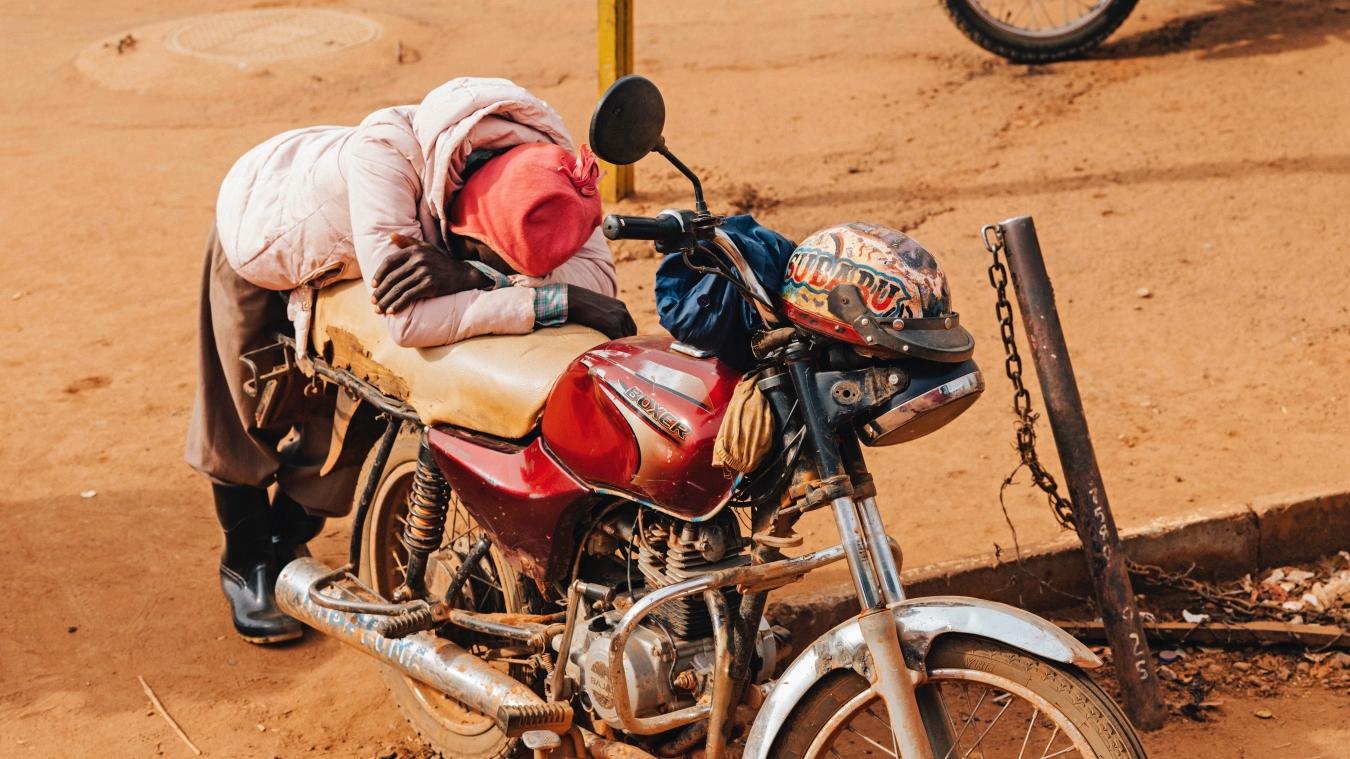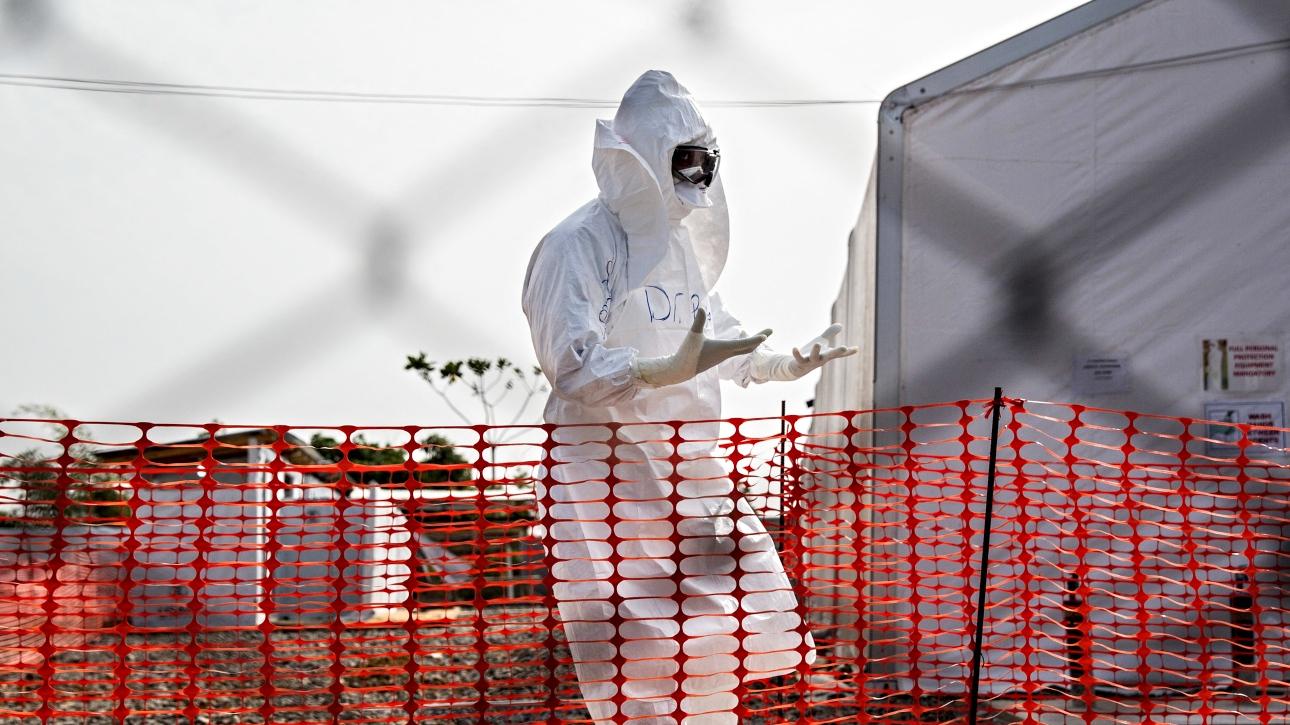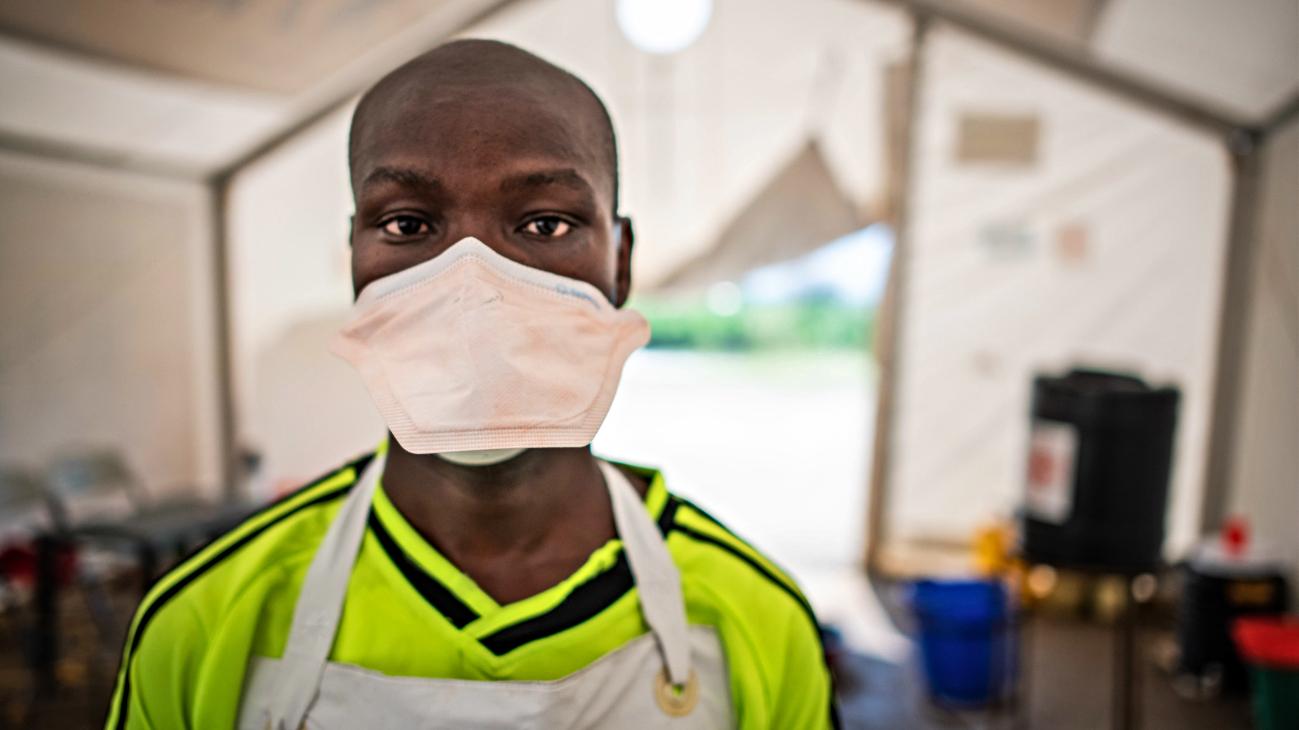With presidential, parliamentary and local elections slated for early 2021, the politicisation of COVID-19 food distribution is being widely discussed. In Gulu, which until last week has Uganda’s highest number of confirmed COVID-19 infections, the effects are felt sharply amongst those reliant on food relief. The central government’s attempts to control and benefit from the process presents both opportunities and risks to the ruling NRM ahead of the elections.
This post is part two in a miniseries exploring the relationship between corona-politics and food distribution in Uganda.
With the 2021 general elections on the horizon, national corona-politics is shaping and re-shaping public authority and politics at every level of Uganda’s de-centralised political system. Gulu, in northern Uganda, formally becomes a city in July 2020 and until last week recorded the highest number of confirmed COVID-19 cases in the country. We have been researching dynamics of public authority and local governance here for many years, and it is striking the extent to which resources intended to provide relief to those most severely affected by food insecurity during the lockdown are subject to the political machinations of local politicians with ambitions to run for office in 2021. In many ways, this represents politics as usual at the national and local level, but the stakes are even higher for ordinary people in urban areas, many of whom distrust the COVID-19 response and quite reasonably fear that hunger will kill them before the virus.
Gulu under lock-down: precarious livelihoods and (de)centralised relief
Gulu town is the provincial capital of the Acholi region and, with a population of roughly 150,000, it is the largest municipality in northern Uganda. The majority of people live hand-to-mouth, earning income from an informal economy that was pretty much shut down as a result of lockdown measures, and is now only gradually re-opening. Boda-boda drivers, casual labour, taxi/bus touts, market loaders, market vendors, tailors, shop attendants and sex workers are all struggling. The price of basic food items such as beans, rice, salt and cooking oil shot up when lockdown was first announced (although they have now normalised). Those with plots of land are working on their fields and planting crops; others, desperate for cash, are selling off productive assets such as live stock and land on the cheap.
People are trying to find creative ways of making ends meet: boda-boda drivers are resorting to selling charcoal and shop-owners illicitly sell merchandise on demand. Expectant mothers and the sick are facing serious challenges accessing health services, particularly those on life-saving treatment, such as anti-retroviral drugs. Meanwhile, the relatively wealthy and well-connected use their social and political connections to move freely around the town and ordinary people complain bitterly of double standards at play.
In theory, Uganda’s National COVID-19 Taskforce structure de-centralises the management of the virus to Uganda’s 135 districts, handing responsibility to District Taskforces for the implementation of public health controls and overseeing food relief distribution. In order to understand how this nominally technical exercise is operating in practice, two long-term political trends must be understood. The first, well explained by Nicholas Awortwi and Bert Helmsing, is that central government has been engaged in a long-term effort to denude the districts of political autonomy and to co-opt them as arenas for patronage. The DTF is chaired by the Resident District Commissioner, a figure appointed by the President to represent the executive and central government in the district. While nominally a non-partisan civil servant, Gulu’s RDC, like other RDCs across Uganda, is believed to demonstrate political allegiance to the National Resistance Movement (NRM), and opposition politicians regularly complain that he sidelines them.
The second trend is what Kristof Titeca refers to as the ‘commodification, commercialisation and marketisation’ of politics, which has become more pronounced since 2006 when multi-party elections were introduced. Gift-giving, material exchange and largesse on the part of election candidates are key to vote-winning across Uganda’s de-centralised political system. In practice then, ahead of next year’s elections, the DTF structure gives the ruling NRM party significant control over food distribution efforts (and the political benefits attached to them) right down to the village level in urban areas across the country.
Social media pressure and aired frustrations
In some parts of Uganda, tensions over who controls the COVID-19 response in the localities has simmered over into physical bust-ups. A filmed incident in Bunyangabu, which later went viral, showed the District Chairman slapping the RDC during an altercation about the re-allocation of government vehicles from the District Council to the taskforce. The District Chairman is the most senior politician in Uganda’s local government system and holds the position of ‘co-ordinator’ of the COVID-19 DTF, answerable to the RDC. In Gulu no such skirmishes have taken place. Despite the fact that he belongs to an opposition party, the Gulu District Council chairman is popular among NRM colleagues and is known for his accommodating stance, including extending cabinet positions to NRM members. He is also popular locally, known to be effective at mobilising resources for the area and reportedly has ambitions to run as a parliamentary candidate in 2021.
As in other parts of Uganda, the District Taskforce was set up hastily and did not adhere to any clear procedural guidelines. Members of the DTF are drawn from the police and security services; the district health office; municipal staff; and elected district councillors as well as from civil society organisations including NGOs, faith based organisations and Ker Kwaro Acholi. The taskforce has nine subcommittees, each designed to cover aspects of the pandemic response. Resource mobilisation is one such committee and it is responsible for securing and managing COVID-19 relief (notably food). This committee has by far the largest number of attendees in records of local meetings and is particularly popular among local politicians seeking elected positions next year. Within that committee the plum place to be is on the food distribution sub-committee, which is currently packed full of senior NRM figures at the district level. While the District Chairman might be an opposition politician, opposition representation at the District level more broadly is weak and beyond him there is no visible opposition presence on these important DTF committees.
As of late May, the Gulu DTF had reportedly overseen the distribution of food relief to 5,100 households. On radio shows and social media, the public are questioning the criteria being used by the DTF to identify and categorise vulnerable people deserving of food aid in the district. That matter took a farcical turn when the DTF quickly heeded the demands of sex workers for food aid after they threatened to expose their client list, which apparently included senior district officials on the task force. Four hundred distributions were promptly made. On social media, one local councillor called this a ‘decision-making surprise’ based on politics rather than an objectively measured vulnerability index. Perhaps it was not that surprising given the threat of sex tapes going viral.
Meanwhile, elected councillors at lower levels of local government, right down to the village, are complaining on social media about district politicians ‘using COVID-19 for their political take off in 2021’. There has been frustration that a disproportionate amount of food aid is being channelled to areas of the town where senior leaders of the task force have political ambitions in 2021. People, worried about how they are going to feed themselves and their families, are getting agitated.
In late May, a targeted distribution of dried and fresh cassava was disrupted when residents protested that only relatives and friends of the task force team were benefitting. The registration process was said to be untrustworthy. The head of the food sub-committee (the NRM’s former candidate for Gulu Municipality MP and current Chair of the Municipal Development Forum) was stepped-down in a closed meeting at the District headquarters because of formal complaints that he was by-passing local leaders and creating his own distribution networks run by political allies. Meanwhile, administrative staff have warned that well-meaning volunteers are inadvertently staffing local campaign drives resourced by COVID-19 relief items. There have even been charges that political opportunists are putting pressure on technical staff in the District Health Office to apportion their services inappropriately.
Looking ahead to the 2021 elections
While COVID-19 marks an extraordinary event, corona-politics is normal politics across Uganda. The way in which the response is being handled right down to the local level is shaped by long-term efforts by the NRM to centralise political control over the Districts and undermine political opposition (often violently), as well as the monetisation of elections and the mismanagement of public resources to fund election campaigns.
A historian of the Black Death wrote that the plague ‘discredited the leaders of society … These elites were obviously failing in their social function, the defence of the common welfare in the name of which they enjoyed their privileges’. Some local politicians with foresight are concerned that being too involved with food distribution at the taskforce level could be bad politics because there is simply not enough to go around, making possible protests and major discontent. In Gulu, groups of people crowd the District yard on an almost daily basis in pursuit of food. The DTF is having to instruct the police to intervene to stop people assembling in large groups. People are complaining about the quality of the food, lack of diversity in what they are getting and increasingly asking for charcoal too.
Clearly there are risks for the government in being seen as fully in control of an inadequate response. At the same time, Uganda’s opposition remains fractured and weak. Museveni has always done a good job of convincing the electorate that a vote for the opposition is pointless and will directly harm their immediate interests. This is captured in a simple reproach to residents of a newly created District who had voted in an opposition MP in 2011. You made a ‘mistake,’ he told them, ‘The MP you voted for does not know where I live nor do I know where he lives’. Then he continued: ‘you are now crying for roads and electricity when you don’t know how to tap resources … Who should weep with you when you decided to vote for the wrong people?’
At a time of heightened need and intense precarity it is not yet clear whether people will punish the government at the polls, or whether they will follow the logics of the ‘commodified, commercialised and marketised’ politics Museveni has so expertly crafted, in the hope of mitigating some of the most dire consequences of the COVID-19 controls.
Photo: bean market in Uganda. Credit: CIAT. Licensed under creative commons (CC BY-SA 2.0).





